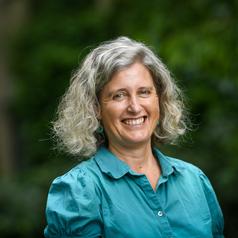
Rachel Bezner Kerr
Professor, Global Development, Cornell University
Rachel has four major areas of research: 1) historical, political and social roots of the food system in Malawi;
2) sustainable agriculture, food security and social processes in rural Africa; 3) social relations linked to health and nutritional outcomes and 4) local knowledge and climate change adaptation.
Her general approach to food systems has been holistic, interdisciplinary and collaborative, drawing from both the natural and social sciences, including collaborations with those working in agricultural and nutritional science, public health and ecology. Most of her research is also applied, community-based and participatory, involving local organizations and community members addressing ways to develop a sustainable food system. In her work, she pays attention to different scales of a problem, as well as the historical roots that shape contemporary realities. She also studies discursive framings of food issues, using post-structural and feminist theory as well as political ecology to explore agricultural practices and policies in southern Africa. Concepts drawn from agroecology, public health and international nutrition have also been important in her research. Her long-term collaborative research project has shown evidence-based improvement in nutrition, food security and soil management from agroecological practices in Malawi and Tanzania.
Less ![]()
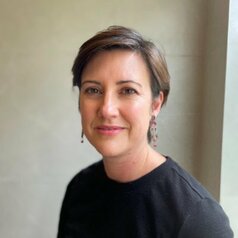
Rachel D Zordan
Research Fellow, St Vincent's Hospital Melbourne and Honorary Research Fellow, Department of Medicine, The University of Melbourne
Dr Rachel Zordan is a Honorary Research Fellow at the University of Melbourne, and a Research Fellow at St Vincent’s Hospital Melbourne.
Dr Zordan aims to reduce health inequality and subsequent disparities that result from inequitable access to essential health services. She conducts research investigating the health, wellbeing, and mortality of marginalised populations including people with a history of homelessness or incarceration. Working alongside health care staff, she translates this research into education and training interventions designed to improve the experience of patients and their families. More recently, Dr Zordan has undertaken research projects to promote trauma-informed and culturally safe care. She enjoys using both quantitative and qualitative research methods.
Dr Zordan supports the career development of research staff and clinicians and currently supervises students and clinicians undertaking research projects at St Vincent’s Hospital, Melbourne.
Less ![]()

Rachel J.C. Fu
Chair & Professor of Dept. of Tourism, Hospitality and Event Management | Director of the Eric Friedheim Tourism Institute | Affiliate Professor of Dept. of Information Systems and Operations Management, University of Florida
Dr. Rachel J.C. Fu has many years of experience in the tourism and hospitality business. Rachel is the Chair and Professor of the Department of Tourism, Hospitality, and Event Management (THEM) at the University of Florida (UF), where she is also the Director of the Eric Friedheim Tourism Institute (EFTI). Rachel is an affiliate Professor in the Department of Information Systems and Operations Management (ISOM) at the Warrington College of Business. Rachel spearheaded the creation of AI/Data Science tracks in THEM undergraduate and graduate certificate programs at UF. In the past decade, through serving as guest editor, associate editor, editorial board member (for 14 leading and well-respected international journals), reviewer (for 9 leading international journals), and chair/reviewer (for 4 major international associations), Rachel has provided leadership in academic and professional organizations. Rachel has published more than 200 papers, including refereed journal articles, refereed conference papers, a magazine article, newsletters, technical reports, and book chapters. Rachel's work has been featured in various media outlets including the Wall Street Journal, Condé Nast Traveler, Carnival Cruise Line, NBC, BBC, Bottom Line Personal, CNBC, ABC News, the Philadelphia Inquirer, Popular Science, AARC, KCBS, Recommend Magazine, U.S. News and World Report and UF News.
Less ![]()
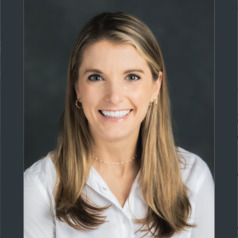
Rachel S. White
Assistant Professor of Educational Leadership and Policy Studies, University of Tennessee
Dr. Rachel S. White is an Assistant Professor of Educational Leadership and Policy Studies at the University of Tennessee-Knoxville. Her research agenda centers around 1) issues of power, voice, diversity, and inclusion in education policy making and implementation processes, and 2) examining structures and policies that contribute to or counteract equitable and socially just K-12 education systems.
Less ![]()

Rachelle Ashcroft
Associate Professor, Factor-Inwentash Faculty of Social Work, University of Toronto
Less ![]()
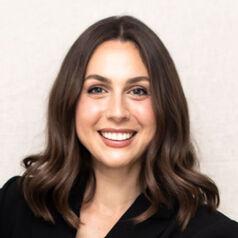
Rachelle Welti
Lecturer, The University of Melbourne
Dr Rachelle Welti graduated from the University of Melbourne with a Bachelor of Biomedicine and Doctor of Dental Surgery. She has worked as a dentist in both public and private settings and holds the role of Clinical Lecturer in Paediatric Dentistry at Melbourne Dental School. Rachelle is currently completing her PhD at the University of Melbourne, Murdoch Children's Research Institute and Royal Children's Hospital Melbourne on antibiotics and management of paediatric odontogenic infections. She is a member of the Royal Australasian College of Dental Surgeons in Primary Dental Sciences and appointed member of the Australian and New Zealand Society of Paediatric Dentistry (Vic) and eviDent Foundation Development Committee.
Less ![]()
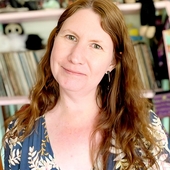
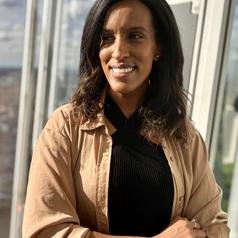
Rackeb Tesfaye
Academic Researcher, Director of Knowledge Mobilization, Pacific Institute on Pathogens, Pandemics and Society, Simon Fraser University
Dr. Rackeb Tesfaye is the Knowledge Mobilization Director at the Pacific Institute on Pathogens, Pandemics and Society at Simon Fraser University. Her current role aims to promote the uptake of knowledge mobilization for pathogen and pandemic-related research, with an emphasis on embedding integrated knowledge mobilization and participatory-based practices. She holds a PhD in Neuroscience and an MSc in Psychiatric Research from McGill University. Dr. Tesfaye’s previous research focused on investigating the link between sleep problems and neurodevelopment disorders while formally developing the capacity to implement ethical and inclusive study protocols as a Doctoral Fellow at The University of Oxford’s Wellcome Trust Centre for Ethics and the Humanities. She has a firm grounding in mixed methodologies across many disciplines and previously worked as a knowledge broker for McGill University’s Health Research Center to catalyze a research-community-partnered initiative to expand access to evidence-based care for autism. Dr. Tesfaye has also worked as a science communication lecturer at McGill University and as a science columnist for CBC radio, creating multiple communication outputs for diverse audiences.
Less ![]()
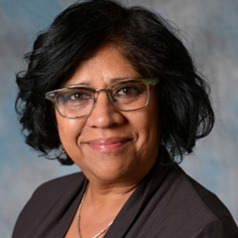
Radhika Balakrishnan
Professor Emeritus, Rutgers University
Radhika Balakrishnan is a professor emeritus at Rutgers University and was a professor of women's and gender and sexuality studies from 2009-2024. She holds a PhD in economics from Rutgers University. Formerly, she held the role of faculty director at the Center for Women's Global Leadership (CWGL) at Rutgers. Radhika currently sits on the board of the Global Initiative of Economic, Social, and Cultural Rights (GI-ESCR) and is a member of the Global Future Council on the Future of the Care Economy. Throughout her career, her roles include serving as a commissioner for the Commission for Gender Equity for the City of New York and participating in the Global Advisory Council for the United Nations Population Fund. She was president of the International Association for Feminist Economics (IAFFE) from 2020 to 2021. She has chaired the board of the United States Human Rights Network and the board of the Center for Constitutional Rights. Her prior academic experience includes a professor of economics and international studies position at Marymount Manhattan College from 2003 to 2009. Additionally, she contributed her expertise to the Ford Foundation as a program officer in the Asia Regional Program from 1992 to 1995.
Radhika Balakrishnan is the co-author of Rethinking Economic Policy for Social Justice: The radical potential of human rights with James Heintz and Diane Elson (Routledge, 2016). She is the co-editor with Diane Elson of Economic Policy and Human Rights: Holding Governments to Account (Zed Books, 2011). She edited The Hidden Assembly Line: Gender Dynamics of Subcontracted Work in a Global Economy (Kumarian Press, 2001) and co-edited Good Sex: Feminist Perspectives from the World’s Religions, with Patricia Jung and Mary Hunt (Rutgers University Press, 2000). She is the author of Why MES with Human Rights: Integrating Macro Economic Strategies with Human Rights (Marymount Manhattan College, 2005) and has authored numerous articles in books and journals. Her research and advocacy work has sought to change the lens through which macroeconomic policy is interpreted and critiqued by applying international human rights norms to assess macroeconomic policy.
Less ![]()
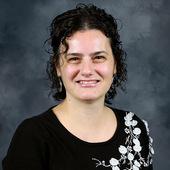
Radostina Purvanova
Professor of Management and Organizational Leadership, Drake University
Less ![]()
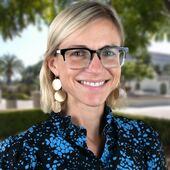
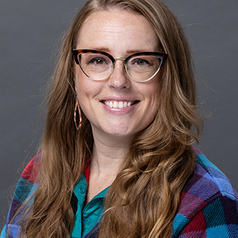
RaeAnn Anderson
Assistant professor in health sciences, University of Missouri-Kansas City
RaeAnn E. Anderson was raised in rural Kansas and has recently, happily returned to the Northeast Kansas/Kansas City area after 15 years away. She is an Assistant Professor in the Health Sciences department and a licensed psychologist. She loves teaching Human Sexuality and our Health Sciences courses at UMKC - to get to teach students how to empower themselves and change their communities is a privilege and honor. In the UMKC Sexual Violence Prevention Laboratory she trains students, encourages them, and leads an interdisciplinary team focused on preventing sexual violence for all people of all ages, genders, races, sexual orientations and on. It is one of a small number of research teams in the entire country focused exclusively on preventing sexual violence. More specifically, her research interests are methodological issues in sexual violence research especially measurement, and basic processes in sexual victimization and sexual perpetration in order to inform sexual assault risk reduction and prevention programs, respectively. She made it this far via great training and generous mentors at the University of Kansas (Bachelor’s), the University of Wisconsin-Milwaukee (PhD), the University of Michigan/Ann Arbor VA Healthcare System (internship) and Kent State University (post-doctoral training). RaeAnn is the first woman on her father’s side to graduate high school, much less college, a fact she keeps in mind as she tries to make things easier for the students who are also on this path. During her family time she enjoys hiking and getting into nature with family, letting her toddler explore the world, reading books, and crafting.
Less ![]()
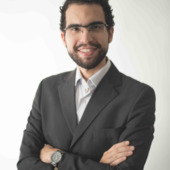
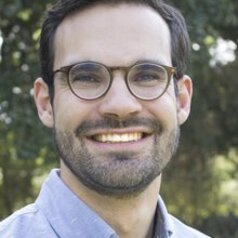
Rafael Schmitt
Lead Scientist, Natural Capital Project, Stanford University
Rafael’s (he/him) research is on catchment-scale modelling of hydrologic and sediment transport processes and their integration in decision making processes. In the freshwater and terrestrial ecosystem team, Rafael works on designing catchment interventions for better hydropower outcomes in the Himalayas and on quantifying the value of natural forest cover and sustainable land management for flood risk reduction in Myanmar.
Rafael holds degrees in environmental science and engineering from ETH Zurich.
During his PhD in information technology at Politecnico di Milano, Rafael developed the CASCADE framework for modelling network-scale sediment connectivity, for which he was awarded the Young Researcher Award of the International Hydropower Association.
Before joining NatCap, Rafael was a postdoc at UC Berkeley’s Center for Environmental Design, where he developed optimization-based approaches to identify hydropower portfolios that balance hydropower production and dam impacts on river ecosystem services in the Mekong River Basin while including issues of deep uncertainty as well as trans-boundary equity.
Less ![]()
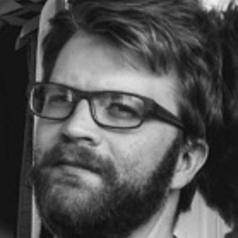
Rafaël Verbuyst
Postdoctoral Researcher in History, Ghent University
Rafael Verbuyst has a joint PhD in history (Ghent University, 2021) and anthropology (University of the Western Cape, 2021). He is currently a postdoctoral researcher at Ghent University’s History Department, funded by the Research Foundation – Flanders. Rafael is also a visiting research fellow at the University of Cape Town’s Centre for African Studies (2022-2024). His research centres on the revival of indigenous identity in post-apartheid South Africa, settler colonialism, ethnographic methodology, the political uses of the past and the concept of indigeneity. He is the author of 'Khoisan Consciousness: An Ethnography of Emic Histories and Indigenous Revivalism in Post-Apartheid Cape Town'.
Less ![]()
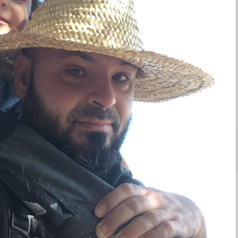
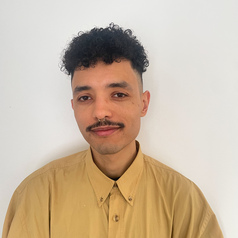
Rafael Mendes Silva
PhD Candidate, Latin American Studies, Trinity College Dublin
Rafael Mendes is a PhD candidate in the Hispanic Department at Trinity College Dublin and an Early Career Researcher at the Trinity Long Room Hub. His research theorises the Latin American Gothic at the intersection of the grotesque, particularly to show how non-normative practices and behaviours give voice to marginalised individuals through working in and against dominant ideologies. Outside academia, he works as a poet and fiction writer. He has been selected for Poetry Ireland's 2023 Introduction Series and was awarded the Irish Writers Centre/Tyrone Guthrie Centre Lacuna Bursary 2024.
Less ![]()
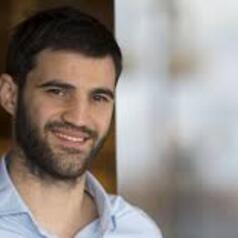
Rafael Morais Chiaravalloti
Lecturer in Environmental Anthropology, UCL
Professor de Antropologia Ambiental, Universtiy College London, Departamento de Antropologia. Experiência em sistemas sócio-ecológicos, especialmente no Pantanal, Brasil
Lecturer in Environmental Anthropology, Universtiy College London, Anthropology Department. Experience in social-ecological systems, especially in the Pantanal wetland, Brazil
Less ![]()

Rafael Weber Hoss
PhD Candidate in Intelligence Technologies and Digital Design, Cardiff Metropolitan University
Less ![]()
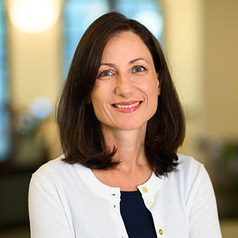
Rafaela Dancygier
IBM Chair of International Studies and Professor of Politics and International Affairs, Princeton University
Rafaela Dancygier holds the IBM Chair of International Studies at Princeton University, where she is Professor of Politics(Link is external) and Public and International Affairs(Link is external) (Link opens in new window). Dancygier is Director of the Mamdouha S. Bobst Center for Peace and Justice(Link is external) (Link opens in new window) and Director of the Initiatives on Contemporary European Affairs (ICEA)(Link is external) (Link opens in new window). Her research examines how social and economic divides structure political conflict in Europe and the United States. Dancygier covers topics such as immigration, radical right populism, political extremism, gender equality, and housing crises and gentrification.
Her first book Immigration and Conflict in Europe(Link is external) (Link opens in new window) explains when and why immigration destinations witness conflict between immigrants and natives, between immigrants and the state, or no conflict at all. Her second book, Dilemmas of Inclusion: Muslims in European Politics(Link is external) (Link opens in new window) examines how minority groups are incorporated into politics and studies the consequences of this inclusion for the nature of party politics, electoral realignments and gender equality. Her articles have appeared in outlets such as the American Journal of Political Science, American Political Science Review, Comparative Political Studies, Journal of Politics, Proceedings of the National Academy of Sciences, World Politics, and elsewhere.
Immigration and Conflict was awarded the Best Book Award by the European Politics and Society Section of the American Political Science Association (APSA), and it was also named a Choice Outstanding Academic Title. Dilemmas of Inclusion won the 2018 Stein Rokkan Prize for Comparative Social Science Research and the 2019 Luebbert Prize, awarded by APSA to the best book published in comparative politics in the previous two years. Her articles have been awarded Best Paper Prizes by APSA’s Sections on Comparative Politics; Migration and Citizenship; European Politics and Society; and Representation and Electoral Systems.
In 2023 Dancygier was elected to be a member of the American Academy of Arts and Sciences.
Less ![]()

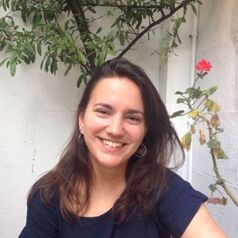
Rafaella Simas Lima
Postdoctoral Research Associate in Urban Studies and Planning, University of Sheffield
Rafaella joined the Department of Urban Studies and Planning in August 2023 as a Postdoctoral Research Associate on the project 'Empty Homes: The Impact on Blue-Green Towns'. The project is investigating the scale and impact of empty and second homes ('low-use properties') in rural and coastal areas of the UK.
Prior to this, Rafaella completed her PhD in Geography at the University of Sheffield. Her ESRC-funded research explored the role of transnational institutional investors in the production of housing in Lisbon. She has also contributed to research on Gulf investment in UK Cities as part of the Urban Institute's Centripetal Cities project.
Rafaella holds an MSc in Urban Development Planning from the Development Planning Unit, UCL, where she worked for two years as a teaching and research assistant.
Less ![]()
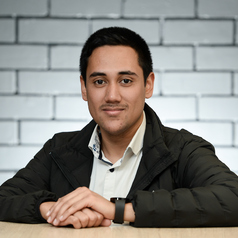
Rafeeq Jaffer
Researcher , University of Cape Town
Rafeeq Jaffer is a SAP Functional Analyst and a Researcher in the Department of Information Systems (IS) at the University of Cape Town. He completed his Honours in Information Systems at the University of Cape Town where he got to research a topic that he was very passionate about. His research focus is on the use of Information Systems in education specifically in underdeveloped communities. The aim is to identify pertinent technological challenges faced in education when integrating technology into the curriculum. To also offer solutions that can address these challenges and promote quality education for all students. Ultimately, to drive social change and national development.
Less ![]()
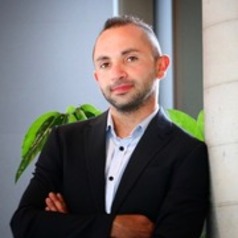
Raffaele F Ciriello
Senior Lecturer in Business Information Systems, University of Sydney
G'Day! My scholarship is deeply committed to compassionate digital innovation. My research explores the intersection of digital innovation, decentralized governance, and ethics, blending rigorous interdisciplinary work with qualitative and dialectical inquiry to address complex sociotechnical dilemmas. I focus on both emerging technologies, such as blockchain/Web3 and AI companions, and established systems like social media and cloud applications, with a particular emphasis on designing, using, and governing these technologies responsibly. My goal is to foster sociotechnical systems that promote the common good while navigating the ethical challenges arising from rapid technological change.
Throughout my career, I have mentored and supported numerous students, including 6 PhD, 23 Master, and 16 Bachelor thesis writers from institutions in Australia, Denmark, Germany, Switzerland, and the United States. I am passionate about helping them succeed in their research and professional development. As an engaged and developmental critic, I review approximately 30 papers per year, serve as an Associate Editor at leading international conferences, and have earned several Best AE Awards (ECIS2022, ICIS2021, ICIS2019). I also guest-edit for journals such as the Journal of Information Technology and the Australasian Journal of Information Systems and was recognized as a Distinguished Member of the Association for Information Systems in 2021.
I have collaborated with software firms, startups, NGOs, banks, and IT consulting houses for both research and teaching. Prior to joining the University of Sydney, I served as an Assistant Professor at the IT University of Copenhagen, earned a PhD and M.Sc. from the University of Zurich, and a B.Sc. from the University of Stuttgart. I speak English, German, Spanish, Italian, and Danish fluently, with basic proficiency in French, Latin, and Russian—and I hope to learn Mandarin one day.
I live in Sydney with my wonderful wife and two mad scientists.
Less ![]()
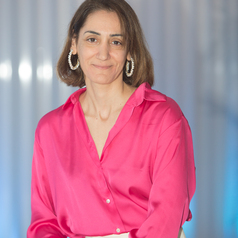
Rafif Srour Daher
Experiencia en docencia, investigación analítica y empírica, y análisis de datos. Capacidad demostrada para trabajar en entornos internacionales/multiculturales (Líbano, EE. UU., España). Aprendiz de por vida; tanto académica como personalmente. Defensora de las mujeres en el empoderamiento STEM - Rompiendo estereotipos uno a la vez. Ganador en múltiples ocasiones del premio al Mejor Profesor y firme defensor del uso del entrenamiento y la tutoría para ayudar a los estudiantes a mejorar su rendimiento académico y su experiencia universitaria en general. Recientemente, nominado entre los 183 principales académicos de datos líderes de 2021 por la revista CDO. También nominada entre 55 mujeres líderes en el sector de la #tecnología en España, en la categoría de "Yo, Jefa", 2021.
Less ![]()
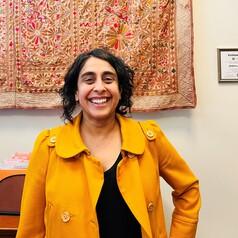
Ragini Shah
Clinical Professor of Law, Suffolk University
Over the past twenty years, I have directed a law school clinic focused on representing immigrants facing deportation. Over this time, the clinic's work has ranged from representing immigrants with criminal convictions, to people applying for asylum, to state and federal level advocacy with national immigrants' rights groups. In the past 7-10 years, I have increasingly incorporated support for community organizations into the clinic that has allowed students to explore what abolition means in the immigration context, and what it looks like to support that work as a lawyer. This work has led to more and more interaction with people who lack formal legal claims to immigration status but are organizing for change nonetheless. Those interactions informed the research for my forthcoming book, which explores migration from the perspective of communities of origin in Mexico and the relationship between the U.S. political economy and migration, immigration enforcement and remittance to development programs. Like the work in the U.S., the research in Mexico led me to organizing efforts that seek to improve conditions in Mexican communities, including two distinct indigenous communities, in different parts of Mexico.
Less ![]()
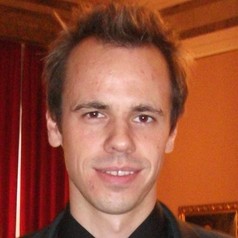
Ragnar Weilandt
PhD Researcher in International Relations, University of Warwick
Ragnar Weilandt is a doctoral researcher at the University of Warwick and the Université libre de Bruxelles working on external perceptions of the European Union, Euro-Mediterranean relations and civil-military relations in the Arab world. He also contributes to various newspapers including SPIEGEL ONLINE, ZEIT ONLINE, The European, The Huffington Post UK and zenith - Zeitschrift für den Orient. Ragnar co-founded FactCheckEU.org, a watchdog monitoring European politicans' statements on EU affairs.
Less ![]()
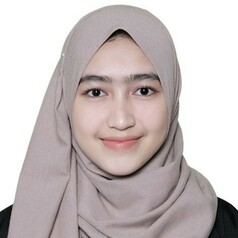
Rahmah Aulia Zahra
Children, Social Welfare, and Health Research Officer, Resilience Development Initiative (RDI)
Public Health fresh graduate majoring in Epidemiology at the University of Indonesia. Currently working as a Children, Social Welfare, and Health cluster researcher at the Resilience Development Initiative (RDI), particularly focusing on the Global Health pillar. Passionate about health, social, environmental, poverty eradication, and other related issues.
Less ![]()
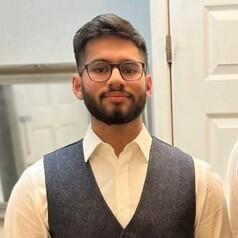
Rahul Sidhu
PhD Candidate, Neuroscience, University of Sheffield
I study neurovascular coupling, which is the link between blood flow and neural activity in the brain. When your brain cells become active they require a constant supply of blood to meet the increasing energy demands. My research uses pre-clinical models of human disease to characterise neurovascular function in dementia, and how cardiovascular disease affects the speed, severity, and progression of Alzheimer’s disease. In the hope that we may be able to decelerate the progression of Alzheimer’s disease.
Less ![]()
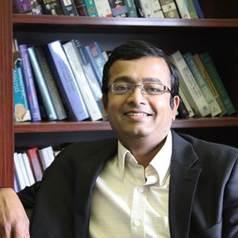
Rahul Telang
Rahul Telang is professor of Information systems and Management at the Heinz College at Carnegie Mellon University and at the Tepper School of Business (Courtesy). He has been at the Heinz College since 2002 and predominantly teaches in the School of Information Systems and Management.
Professor Telang’s is broadly interested in how Information and Communication Technologies (ICTs) and associated digitization of information impact consumers, business and policies. Within this thread, his interest lies in two major domains. First is Digital Media Industry with a particular focus on how digitization (and associated piracy) in copyrighted industries is affecting the incentives of content provider, distributors and users. His research is directed towards understanding and shaping an optimal copyright and intellectual property policy in the Digitization Era. He was the recipient of Sloan Foundation Industry Study fellowship and a number of Google Faculty awards. He is also co-director of a center IDEA (Initiative for Digital Entertainment Analytics). He has worked extensively with industry and policy makers on variety of issue surrounding digitization of Media.
His second area of work is on economics of information security and privacy. His key interest is in understanding the incentives of various parties (users, firms and hackers), why markets fail, how to create a useful policy framework and how to measure the effectiveness of such policies. His work explored the controversy surrounding vulnerability disclosure, vulnerability markets and their role in generating optimal outcomes. Recently, he has been examining the role of data breach disclosure laws on identity thefts. He was the recipient of NSF CAREER award for his work on economics of information security. He is also part of Cylab and Institute for Infrastructure Protection (I3P). Currently, he is working on a large NSA funded project on examining home users’ security and privacy behavior.
Some of his other work has explored the role of broadband in schools, ICTs in for form of EMR (Electronic Medical Records) in hospitals, issue of number portability, exclusivity and so on in mobile industry.
Less ![]()
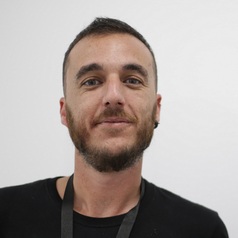
Raimundo Seguí López-Peñalver
Profesor de Epidemiología en VIU, Universidad Internacional de Valencia
Licenciado en Farmacia, Doctor en Parasitología Humana y Animal, con amplia experiencia en epidemiología de enfermedades infecciosas, con especial interés en aquellas catalogadas como 'Tropicales', así como en epidemiología de las aguas residuales.
Less ![]()
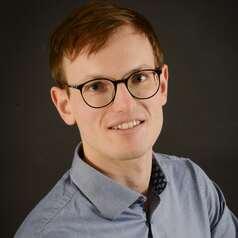
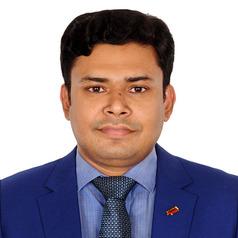
Raisul Islam Sourav
PhD Candidate in Legal Analytics, University of Galway
Raisul is a Doctoral Researcher at the School of Law, University of Galway. He holds a Scholarship awarded by the College of Business, Public Policy and Law of the University of Galway to pursue his PhD. Raisul’s research focuses on Regulation of Legal Analytics in the Legal Profession and investigates whether legal analytics tools enhance access to justice.
He is also an Associate Professor (presently on study leave) at the Department of Law, Dhaka International University (DIU), Dhaka, Bangladesh, and a qualified lawyer at the Supreme Court of Bangladesh. He is the elected Ethnic Minorities Officer 2024-25 of the University of Galway Students’ Union (Aras-Na-Mac-Leinn).
Raisul worked as a lead consultant for a Road Safety law reform project in Bangladesh. He writes numerous Opinion Editorials (Op-eds) and scholarly articles in both national and international peer reviewed journals, newspapers and magazines on contemporary legal and human rights issues. Raisul is currently the Senior Editor of University of Galway Law Review. Earlier he served as the Executive Editor of Dhaka International University Journal of Law and Human Rights.
Less ![]()
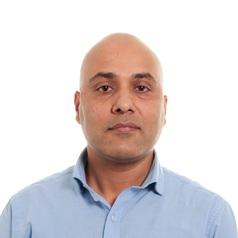
Raj Sharma
Lecturer, Civil Engineering, CQUniversity Australia
Dr R is a Senior Lecturer at CQUniversity. His PhD research was in hillslope hydrology and landslides, and he has contributed through several publications focusing on shallow landslides and hillslope hydrology.
Less ![]()
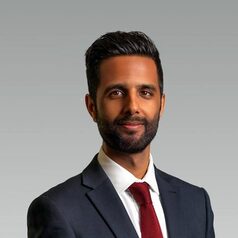
Rajan Basra
Senior Research Fellow, International Centre for the Study of Radicalisation, King's College London
Rajan Basra is a Senior Research Fellow at the International Centre for the Study of Radicalisation (ICSR) and a postdoctoral researcher in the Department of War Studies at King's College London.
He researches how terrorists think and act, focusing on the terrorist threat in Europe, the relationship between regular crime and terrorism, and the role of prisons in radicalisation and recruitment.
Dr Basra has presented his research at the United Nations Security Council, the European Council, and the UK’s Foreign, Commonwealth & Development Office, and is a member of the Radicalisation Awareness Network (RAN).
He completed his PhD in War Studies at King’s College London, for which he won a 2021 King’s Outstanding Thesis Prize. He holds an MA in Terrorism, Security, and Society from King’s College London and a bachelor’s degree from the University of Warwick.
Less ![]()
- Market Data




















